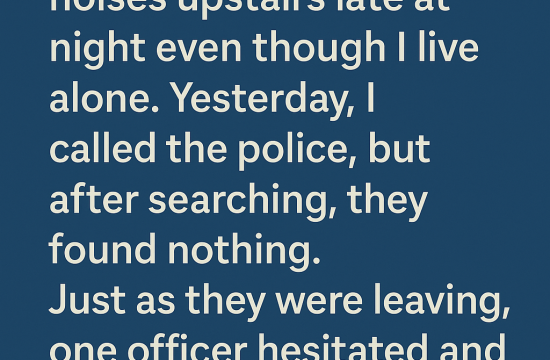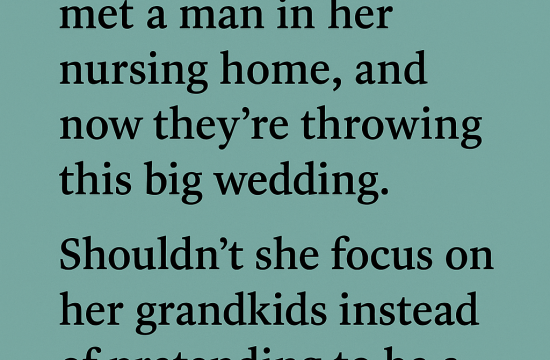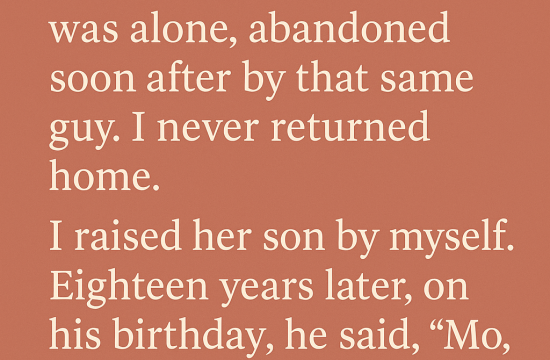When a mother started telling her daughter she didn’t understand her, it seemed like a small issue. Just a miscommunication. Maybe even stress. But it kept happening—and more often. Conversations unraveled, arguments flared, and the easy bond they once shared began to fray.
Something deeper was happening.
Unseen but relentless, a neurological disease was already working its way through her mother’s brain. By the time they knew what it was, their lives had already changed forever.
Growing Distance Between a Mother and Daughter
When Caty Stanko graduated from college in 2021, she returned home expecting familiarity. Instead, she found confusion—and a growing emotional distance from the person who had once been her closest companion.
For most of her life, Caty and her mother had been inseparable. They shared everything—laughs, opinions, even mannerisms. Their connection had always been effortless.
But now, even simple conversations broke down. Her mother didn’t just disagree—she didn’t seem to grasp what Caty was saying. It wasn’t anger. It wasn’t avoidance. It was like a fog had settled over their once-crystal-clear connection.
Arguments flared over nothing. Caty felt like a teenager again—misunderstood, defensive, exhausted. At first, she blamed stress. Or maybe it was just a rough transition after college. But the tension only grew. Her mother—an accomplished attorney with razor-sharp intellect—wasn’t acting like herself.
Still, her intelligence helped her mask the symptoms. She compensated. For a while.
Then cracks began to show: forgetting relatives’ names, struggling to use a rideshare app, fumbling through routine errands. These weren’t isolated moments. Something was wrong.
Caty noticed it first. Then her siblings. Then everyone.
In October 2021, Caty turned to the internet, typing in words like aphasia and dementia. As she read, her stomach dropped. The symptoms matched. All of them.
Months later, in May 2022, her mother was officially diagnosed with frontotemporal dementia, a rare, degenerative brain disease. The subtype? Primary Progressive Aphasia—a form that attacks the very ability to use and understand language.
Her mother was 63. The average life expectancy? Seven years. But even that sounded optimistic.
What Is Frontotemporal Dementia?
Frontotemporal dementia (FTD) is a rare, often misdiagnosed condition that affects the brain’s frontal and temporal lobes—areas responsible for personality, decision-making, behavior, and language.
It appears earlier than Alzheimer’s—typically between ages 40 and 65—and accounts for 10–20% of dementia cases. FTD can masquerade as psychiatric illness or even depression in its early stages.
Caty’s mother was diagnosed with primary progressive aphasia (PPA), a form of FTD that attacks language. It begins subtly—lost words, confusion in conversations—and worsens over time. Language fragments. Comprehension fades. Eventually, speech becomes almost impossible.
Even the most basic phrases are lost.
Living with the Diagnosis: The Emotional Fallout
The diagnosis brought clarity, but not comfort.
Caty was just 23, newly launched into adulthood—and suddenly grieving someone who was still physically here. Her mother had always been her anchor, the one person she could turn to for advice, comfort, or understanding.
Now, that tether was slipping.
A doctor gave her advice that she still clings to today:
“Live your life. Do everything you said you were going to do—and do it for your mom.”
At first, that felt impossible. Caty struggled with isolation, anxiety, and deep grief. Friendships faded. Her emotions spiraled.
Three weeks after the diagnosis, she left her hometown of Berks County, Pennsylvania, and moved to New York. Her father became her mother’s full-time caregiver. Caty tried to start over.
But the weight didn’t lift.
She drank more than ever before. She couldn’t focus. Her world felt cracked open and exposed. And unlike the rest of her family—who tended to keep things private—Caty began talking about it. Telling people her mom was sick helped. It made her feel less alone.
Still, the grief came in waves. It wasn’t just about loss. It was about the future she’d never get to have.
No wedding dress shopping.
No parenting advice.
No long chats over coffee.
No mother-daughter road trips or grandkid babysitting.
The things she’d always assumed would happen were gone. And she couldn’t stop thinking about it.
Running Toward Purpose
Amid grief, Caty found something unexpected: running.
Alongside her brother Drew, she committed to training for the New York City Marathon in honor of their mom. They weren’t just running—they were raising money for the Alzheimer’s Association.
Caty had never been a serious athlete. She worked out occasionally, but marathons? That felt impossible. Still, she trained hard—three runs a week, strength training, building a new routine.
Oddly, her mother began walking long distances too—sometimes 30 to 40 miles per week. Doctors had said movement might slow the progression of her disease, so she walked. Maybe without understanding why, but she walked.
For Caty, the training was both painful and healing. Runs often ended in tears. Some in panic. She’d call her dad mid-run, sobbing. But each step gave her something to hold onto.
In November 2023, Caty crossed the NYC Marathon finish line. Drew stayed beside her the entire race—even though, as a former D1 athlete, he could have finished much faster. They raised over $12,000 for research.
That race wasn’t the end. It was the beginning.
Now, the siblings have a new goal: to run all six Abbott World Marathon Majors in their mother’s honor. Every finish line will be for her.
Carrying Her Mother Forward
Today, Caty lives with the awareness that frontotemporal dementia may be genetic. That knowledge shapes everything—from what she eats to how she exercises. She avoids sugar, takes her vitamins, focuses on long-term health. She’s not obsessed, but she’s intentional.
Her mother is now nearly nonverbal. But the lessons she taught Caty—about strength, humor, persistence—live on.
Running. Showing up. Taking care of herself.
These are the new ways Caty communicates with her mother.
They no longer speak in words. But the love remains.
Final Thoughts
Frontotemporal dementia stole the voice of the woman who raised her. But it did not steal her impact. It did not erase the love or the memories or the resilience passed down.
Caty Stanko runs now—not just to escape grief, but to carry her mother with her.
Step by step. Mile by mile.











